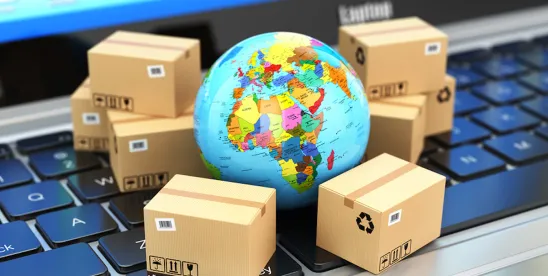Member States in the European Union have taken additional measures beyond Regulation (EU) 2021/821 to control exports of dual-use items. More than half have extended authorization requirements for non-listed dual-use items suspected of being intended for military “end-use.” Additionally, five Member States have imposed export authorization for cyber-surveillance items linked to internal repression and serious human rights violations. The official publication of these additional national measures has just been released.
Regulation (EU) 2021/821 establishes a European Union regime for the control of the export, brokering, technical assistance, transit and transfer of dual-use items. However, Member States may also take additional measures over and above the EU-wide regime. The Commission and EU Member States have just published information on these additional measures:
- More than half of EU Member States have adopted national legislation extending the export authorization requirements of Article 4(1)* to dual-use items not listed in Annex I (“not listed items”) where the exporter has reasonable grounds to suspect that those items are or may be intended for use in connection with military “end-use”, including as parts or components.
- Five Member States have notified the Commission that they have adopted or maintained national legislation imposing an authorization requirement on the export of cyber-surveillance non-listed items if the exporter has grounds to suspect that those items are or may be intended, in their entirety or in part, for use in connection with internal repression and/or the commission of serious violations of human rights and international humanitarian law.
-
More than half of EU Member States have extended brokering controls to non-listed dual-use items. In Estonia, for example, an authorization is required for the brokering of dual-use items which because of their end-use or end-user, public security, or human rights considerations have the characteristics of strategic goods, even though they are not included in the list of strategic goods.
In the Netherlands, a license is also required for the brokering of 37 listed chemical substances when the destination is Iraq, regardless of the specific consignee or end-user.
- Sixteen Member States have extended transit controls to non-listed dual-use items.
- Sweden, Italy and Croatia have adopted national legislation imposing an authorization requirement and extending the application of an authorization requirement to the provision of technical assistance related to not listed dual-use items if the provider of the technical assistance has been informed by the relevant authority or has reasons to suspect that those items are, or may be intended for, any of the uses referred to in Article 4(1)*.
-
Fifteen EU Member States have introduced additional controls on non-listed items for reasons of public security, including the prevention of acts of terrorism, or to safeguard human rights.
Germany and France have adopted extensive controls in this area.
In Germany, the export of not listed dual-use items may be subject to authorization or prohibited for reasons of public security or the protection of human rights. The prohibition extends to the following items: surveillance systems, equipment and components for ICT (Information and Communication Technology) for public networks and software as described in this Regulation and if intended for export to certain countries, ground vehicles or trucks with specific characteristics.
In France, national controls on the export of dual-use items have recently been extended to goods and technologies related to quantum computers and their enabling technologies, and to equipment for the design, development, production, testing and inspection of advanced electronic components. This extension was published on February 10, 2024.
-
Eleven EU Member States have imposed an authorization requirement for the transfer from their territory to another EU Member State of items not listed in Annex IV to Regulation (EU) 2021/821. Annex IV lists items that do not benefit from free movement in the internal market, and specific measures have been taken to extend controls on intra-EU transfers.
Bulgaria and Luxembourg require additional information to be provided to their relevant authorities for the transfer from their territory to another EU Member State of not listed items.
In the case of Luxembourg, additional information must be provided in any application for transfer authorization including: a description of the implementation of the algorithms, a description of the security norms or standards, and a description of the type of data concerned by the service.
Click here to read more.
*Article 4(1) of Regulation (EU) 2021/821: items in question are or may be intended, in their entirety or in part: (a) for use in connection with the development, production, handling, operation, maintenance, storage, detection, identification or dissemination of chemical, biological or nuclear weapons or other nuclear explosive devices or the development, production, maintenance or storage of missiles capable of delivering such weapons; (b) for a military end-use if the purchasing country or country of destination is subject to an arms embargo […]; (c) for use as parts or components of military items listed in the national military list that have been exported from the territory of a Member State without authorisation or in violation of an authorisation prescribed by the national legislation of that Member State.






 />i
/>i

